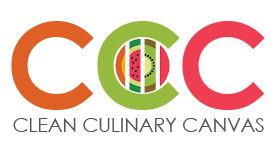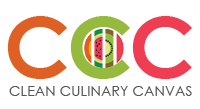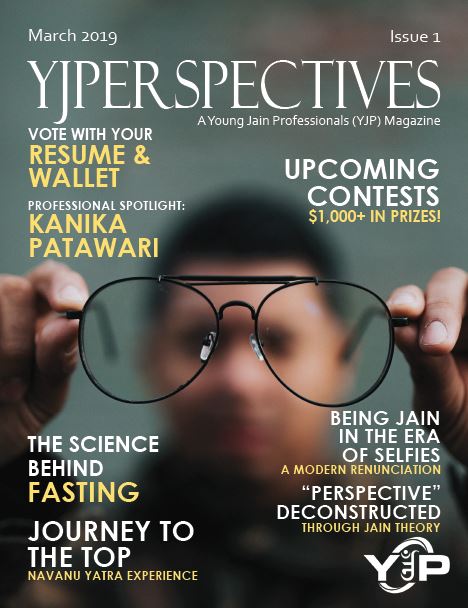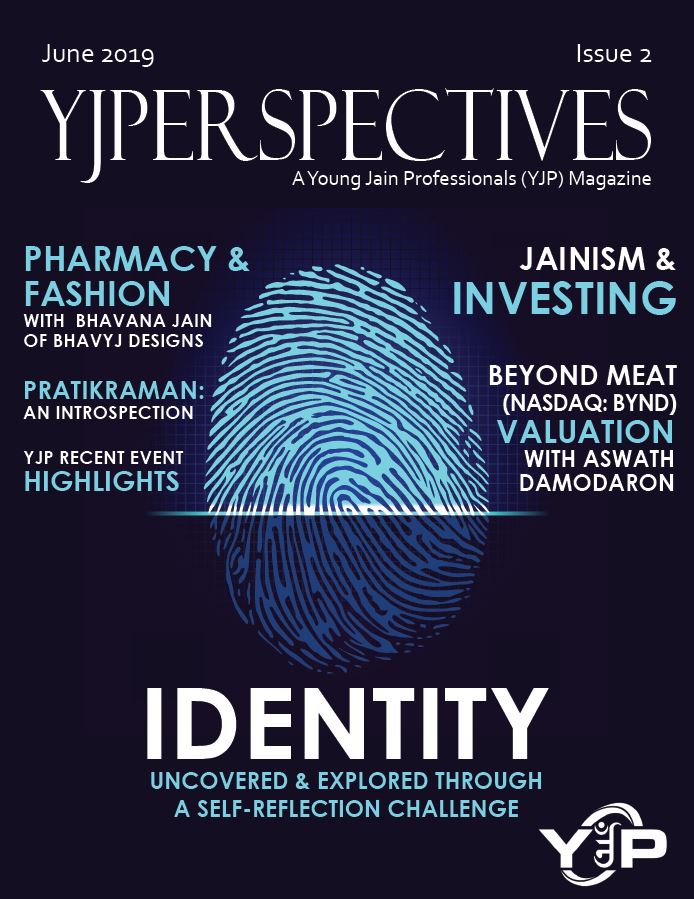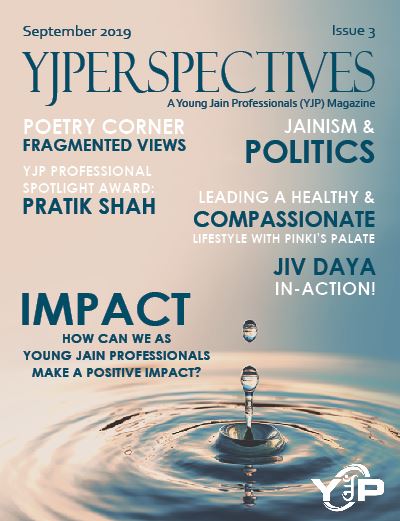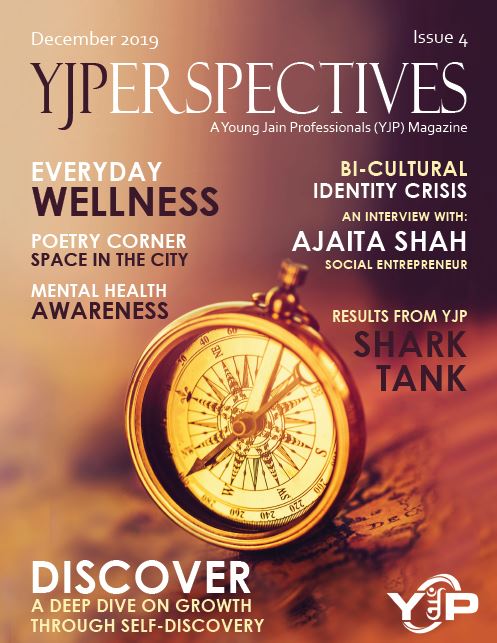
Welcome & Dedication
Welcome to the Clean Culinary Canvas (CCC)! It has been said that eating is a necessity, but cooking is an art. I hope this blog leaves you with some inspiration and guidance towards consciously adapting a clean, creative, healthy, and more compassionate diet.
I am a proud Indian American and Jain by religion. I grew up eating my mom’s traditional Indian-Gujarati food, and I’ve come across authentic dishes from other cultures through travel and socializing. This blog features recipes covering a variety of global cuisines that are influenced by my upbringing and cross-cultural experiences.
My dad is an engineer: practical, logical, and measured. My mom is wildly creative, where she effectively served as Pinterest for our family and community before it launched and became “a thing.” My mixed left- and right- sided personality stems from a blend of both.
My dad inspired me to pursue biomedical engineering. Through my academic experiences, I have come to appreciate the human body as the most fascinating engineering feat in nature. Despite its marvels, it is susceptible to natural aging, degeneration, and disease. My areas of research interests lie in orthopedics and regenerative medicine. I recognize the impact of lifestyle choices, including dietary choices, coupled with such modern medical technologies on the ability to live an active and fulfilling life. I believe harms posed by the introduction of processed foods within the modern diet outpace strides in medicine and related medical technology offerings. It is for this reason that I have dedicated a portion of this blog towards awareness on the health implications of processed foods and guidance on how to minimize its intake.
My mom channeled her creative talents into each of our gatherings. The hallmarks of a Shah family hosted event are food, photos, and fun. I’ve enjoyed tag-teaming with her through the “production” of these at-home events, where planning extends well beyond each themed menu, covering crockery, décor, guest traffic flow, and other minute details. It is through these memories that I grew fond of experimenting with new recipes & flavors with our various guests in mind, where I have come to appreciate both the preparation and presentation of food as a true form of art.
The Clean Culinary Canvas is dedicated to my parents. All recipes are vegetarian, where the majority contain little to no processed ingredients, are vegan, and may be modified to fit a pure Jain diet. If you have feedback or suggestions, please drop me a message!
With love,


About CCC Recipes
All recipes on the Clean Culinary Canvas are vegetarian, where the majority contain little to no processed ingredients, are vegan, and may be modified to fit a pure Jain diet. Recipes may be filtered and sorted across the following dietary categories: vegetarian, vegan, gluten-free, refined sugar + grains free, and / or Jain. Each are “tried and tested” against the exact measurements and directions posted here. We love to see renditions – try these recipes and tag @CleanCulinaryCanvas on social media!
If you have feedback or suggestions, please contact info@cleanculinarycanvas.com.
WHAT IS JAINISM AND THE JAIN DIET
 Jainism is one of the oldest religions in the world, and beyond this, it is a way of life. Living the Jain Way of Life involves embracing its cardinal principle of ahimsa or non-violence. The practice of ahimsa is universal compassion and avoidance of violence through thoughts, words, and actions towards all living beings.
Jainism is one of the oldest religions in the world, and beyond this, it is a way of life. Living the Jain Way of Life involves embracing its cardinal principle of ahimsa or non-violence. The practice of ahimsa is universal compassion and avoidance of violence through thoughts, words, and actions towards all living beings.
“In happiness and suffering, in joy and grief, we should regard all creatures as we regard our own self and should therefore refrain from inflicting upon others such injury as would appear undesirable to us if inflicted upon ourselves.”
-Mahavir Swami
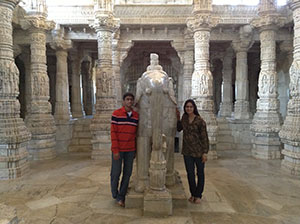 Jains take the path that minimizes harm while maintaining healthy survival. When it comes to diet, Jains are strict vegetarians. With the industrialization of the dairy industry, several Jains are now adopting the practice of veganism considering animal cruelty associated with factory farming in addition to health and environmental benefits. Some Jains do not consume honey given that bees are harmed through its making. Others omit root vegetables such as potatoes, carrots, beets, radish, onion, leeks, and garlic as well. In Jainism, root vegetables are considered ananthkay which translates to “one body containing infinite lives.” Uprooting such vegetables involves killing an entire plant, not just taking one of its fruits, where microorganisms in the surrounding soil are also harmed. Jains within my community follow wide-ranging diets, and all recipes posted to Clean Culinary Canvas may be filtered as vegetarian, vegan, and / or Jain.
Jains take the path that minimizes harm while maintaining healthy survival. When it comes to diet, Jains are strict vegetarians. With the industrialization of the dairy industry, several Jains are now adopting the practice of veganism considering animal cruelty associated with factory farming in addition to health and environmental benefits. Some Jains do not consume honey given that bees are harmed through its making. Others omit root vegetables such as potatoes, carrots, beets, radish, onion, leeks, and garlic as well. In Jainism, root vegetables are considered ananthkay which translates to “one body containing infinite lives.” Uprooting such vegetables involves killing an entire plant, not just taking one of its fruits, where microorganisms in the surrounding soil are also harmed. Jains within my community follow wide-ranging diets, and all recipes posted to Clean Culinary Canvas may be filtered as vegetarian, vegan, and / or Jain.
“Ahimsa (non-violence) is the strongest force known.”
-Mahatma Gandhi
Jainism values several universal messages and practices that extend beyond ahimsa and its implications on dietary choices. Please feel free to check-out past issues of YJPerspectives where young Jain professionals across North America share perspectives on the practical applications of Jainism in various personal and professional settings.
